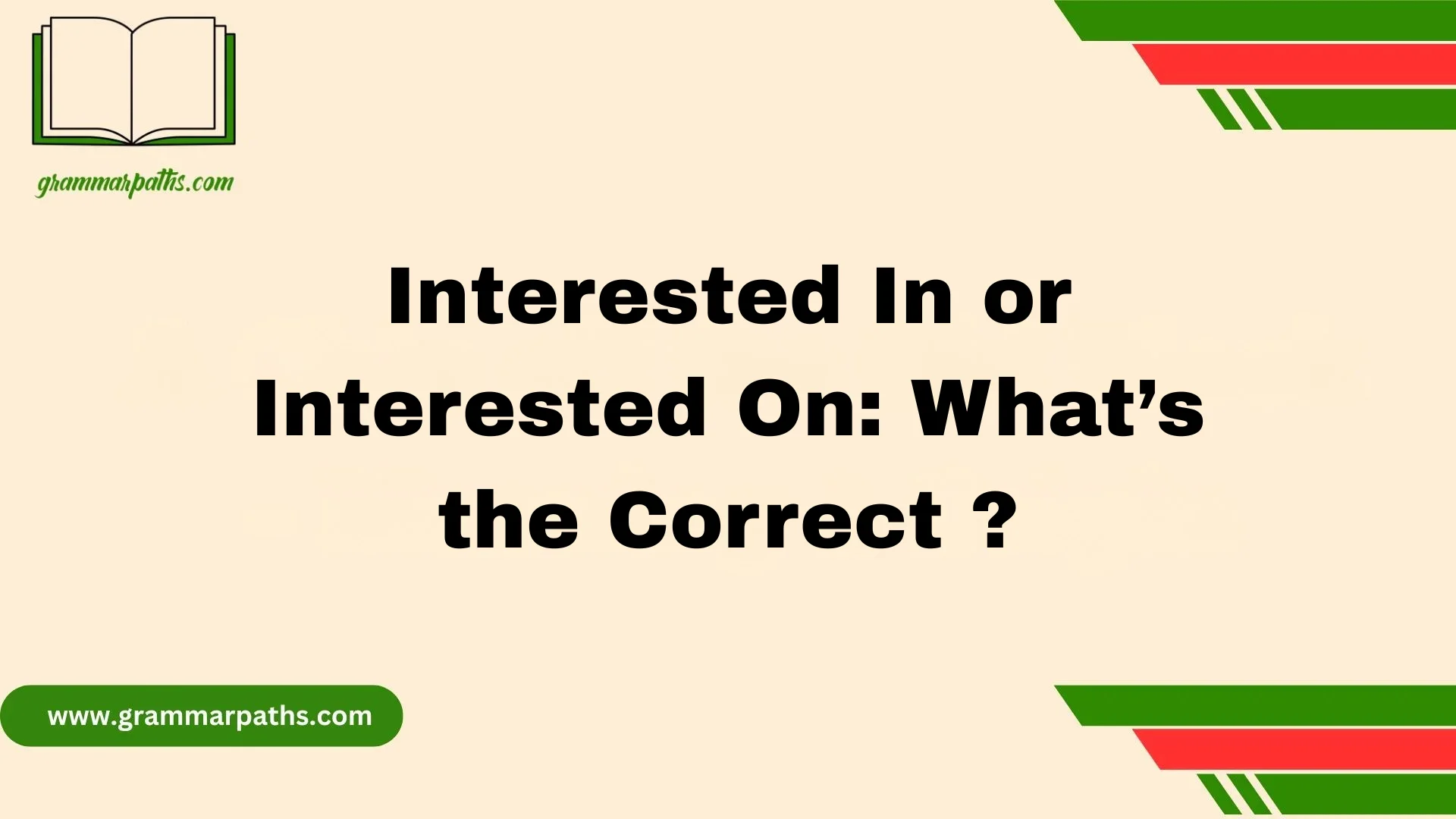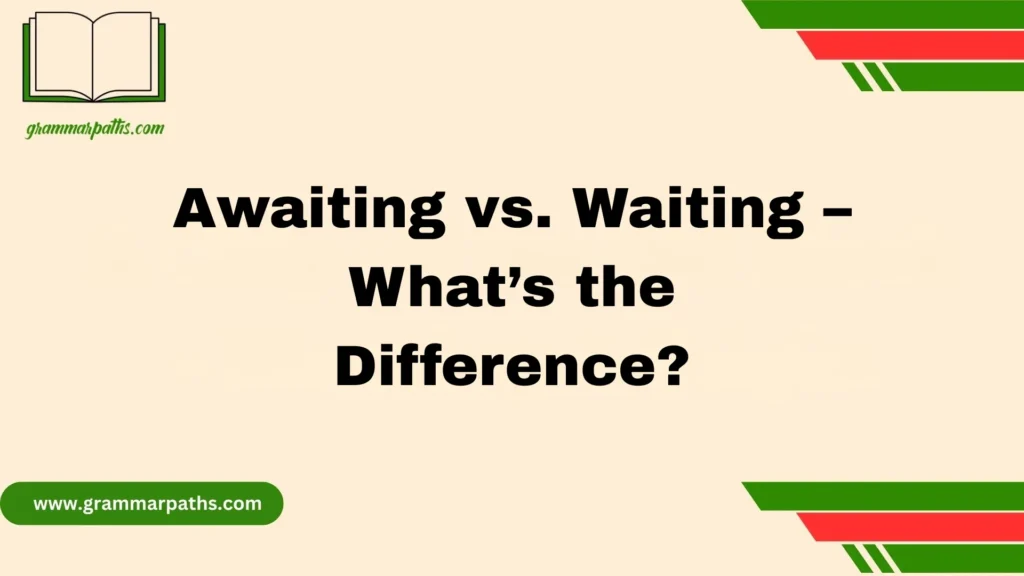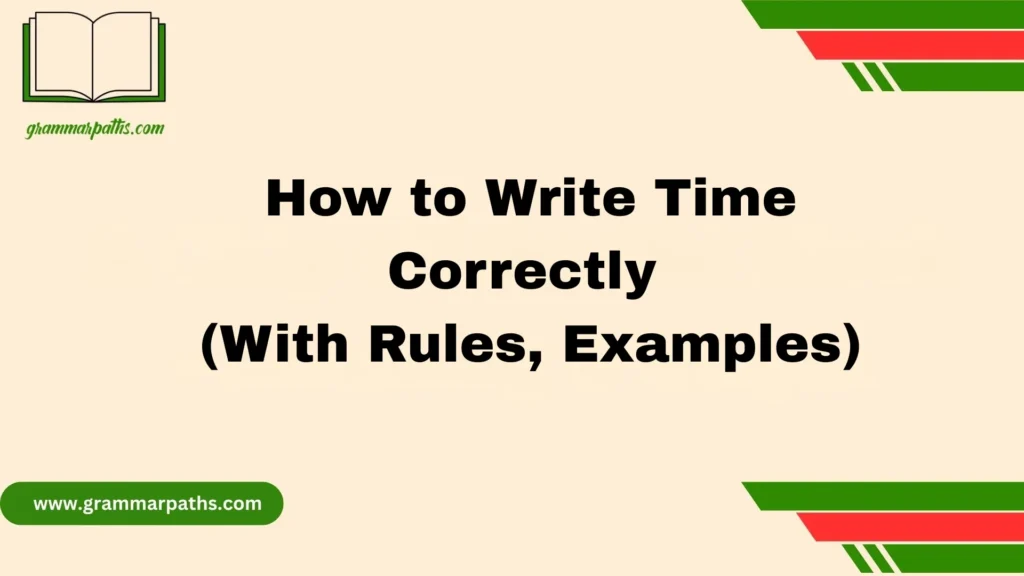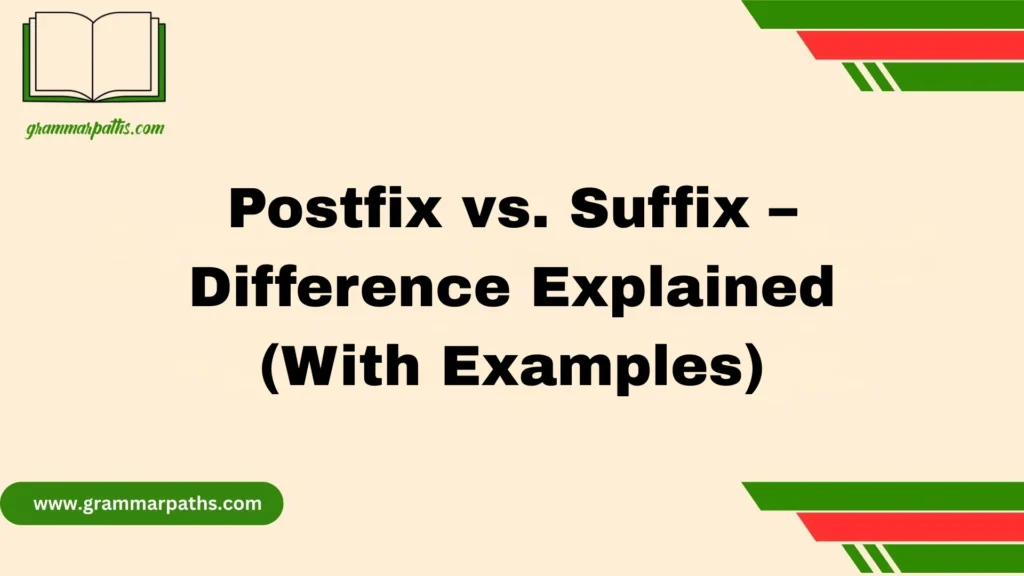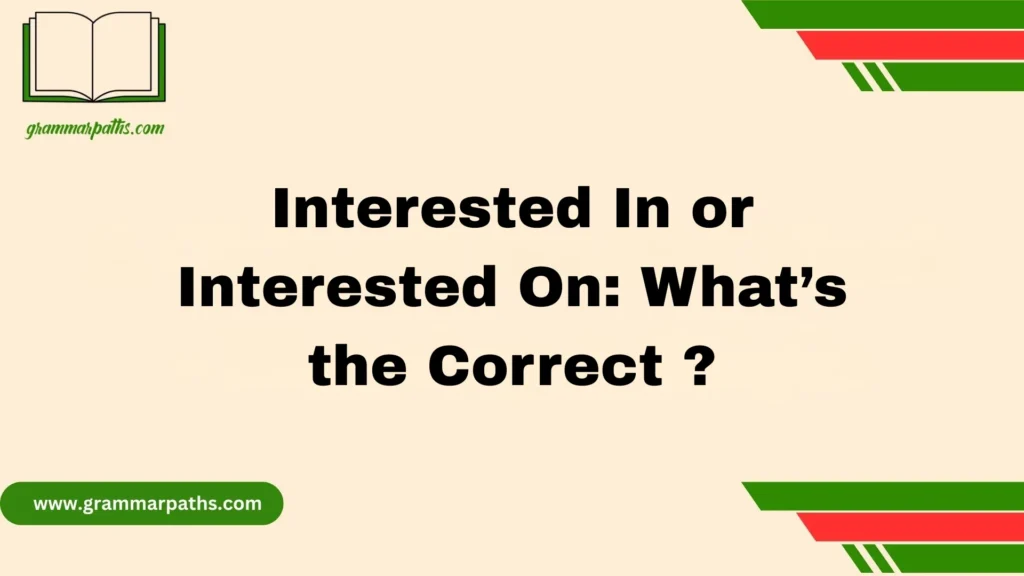In every grammar lesson I’ve taught, students often show confusion about the preposition in the phrase “Interested In or Interested On,” Within the classroom, I’ve seen how small mistakes in speaking or writing lead to doubt, but with practice, examples, and constant repetition, learners start recognizing the correct usage. Over the years, while correcting essays and hearing conversations, I noticed how awkward expressions become when the wrong choice is made.
By building understanding of the rule, connecting it to real-life patterns, and giving enough exposure, the habit forms naturally. In fact, I remember one technology discussion where a sentence stood out—it was both polished and clear, and it reminded them that the right option flows with ease in any context. With time, teaching these expressions has shown me that even one hesitation or wrong choice can flip a whole line, but steady practice ensures natural confidence.
What Does “Interested” Really Mean?
The word “interested” is an adjective. It describes a person’s feeling of curiosity, attention, or engagement with something. On its own, “interested” feels incomplete. You can’t just say, “I’m interested” and stop there. The listener will naturally ask: Interested in what?
- Example:
- Wrong: I’m interested.
- Correct: I’m interested in photography.
The adjective requires a preposition to link it to the object of interest. Without that connection, the sentence doesn’t carry its full meaning.
Think of “interested” as a bridge that always needs something on the other side. That “something” comes through a preposition.
Prepositions in English: The Basics
Prepositions are small words that connect other words in a sentence. They usually indicate relationships of place, time, cause, or manner.
- Examples of common prepositions: in, on, at, by, with, for, to.
- Examples in use
- She’s at the store.
- We met on Monday.
- They were amazed by the news.
When it comes to adjectives, certain prepositions become fixed partners. For example:
- Good at math
- Famous for achievements
- Afraid of spiders
- Interested in science
This pairing of adjective + preposition is not random. Over time, English has settled on specific combinations that simply sound right to native speakers. Deviating from them makes the sentence sound unnatural.
Why “Interested In” Is the Standard
The combination “interested in” is correct because English usage has firmly established it as the natural pairing. It expresses curiosity, attention, or involvement regarding a subject, activity, or idea.
Examples of correct usage:
- I’m interested in learning Spanish.
- They are interested in technology startups.
- She’s interested in art history.
Notice that after “in,” you can place either:
- Nouns → interested in music
- Gerunds (-ing forms) → interested in playing chess
Here’s a quick comparison table to make it clear:
| Correct Usage | Incorrect Usage | Why? |
| I’m interested in painting. | I’m interested on painting. | Wrong preposition |
| She’s interested in economics. | She’s interested on economics. | “On” changes meaning and sounds unnatural |
| They’re interested in joining the club. | They’re interested on joining the club. | “In” pairs correctly with “interested” |
In every example, “in” works smoothly, while “on” creates a clash.
The Confusion with “Interested On”
Why do so many people mistakenly say “interested on”?
- Influence of Other Languages
- In Spanish, “interesado en” sometimes gets mistranslated as “interested on.”
- In Filipino English, the preposition “on” is often used where standard English uses “in.”
- Similarity to Other Expressions
- We say “focus on,” “rely on,” “depend on.” Learners sometimes assume “interested on” follows the same pattern.
- Overgeneralization
- English learners often overextend prepositions. Since “on” works in many cases, they apply it where it doesn’t fit.
But here’s the key takeaway: in standard English, “interested on” is always incorrect. You’ll never find it in respected dictionaries, academic writing, or native usage guides.
Related Variations and Other Prepositions
While “interested in” is the dominant form, there are a few other combinations worth knowing.
Interested To
- Correct in certain contexts when followed by a verb.
- Example: I’m interested to hear your opinion.
- Meaning: eager or willing to do something.
Interested By
- Less common, but correct.
- Example: He was interested by her unusual idea.
- Used mostly in British English to mean “captivated” or “intrigued.”
Comparison Table
| Expression | Correct? | Example | Notes |
| Interested in | ✅ Standard | She’s interested in fashion. | Always correct |
| Interested on | ❌ Wrong | He’s interested on politics. | Never correct in standard English |
| Interested to | ✅ Limited | I’m interested to know more. | Works with verbs in certain contexts |
| Interested by | ✅ Rare | He was interested by the story. | Less common, more formal |
Common Errors and Misconceptions
Even advanced learners fall into common traps:
- Mixing it with “focused on.”
- Wrong: I’m interested on this subject.
- Right: I’m focused on this subject / I’m interested in this subject.
- Overusing “interested to.”
- Learners sometimes write: I’m interested to play soccer.
- Correction: I’m interested in playing soccer.
- Assuming “on” and “in” are interchangeable.
- They are not. Prepositions in English have unique, fixed pairings.
Practical Tips to Get It Right Every Time
Here are some proven tricks to lock this rule into your memory:
- Memory Hook: “In for interest.” Always pair interest with “in.”
- Replacement Test: If you can swap in “curious about” and the sentence works, then “interested in” is correct.
- Example: I’m interested in cooking. → I’m curious about cooking.
- Exposure Practice: Read articles, listen to podcasts, or watch shows where native speakers use these expressions naturally.
Examples in Everyday Contexts
Let’s look at how “interested in” appears across real-life situations:
- Education
- Students are interested in learning advanced math.
- Business
- The investors are interested in your proposal.
- Personal Life
- I’m interested in traveling to new places.
- Technology
- Many young people are interested in artificial intelligence.
By practicing sentences like these, the correct structure becomes second nature.
Conclusion
Learning whether to use Interested In or Interested On may feel tricky at first, but the rule is simple: the correct choice is always Interested In. Over time, with practice, exposure, and repetition, learners stop second-guessing themselves and begin to use the phrase naturally in both writing and speaking. The key lies in noticing patterns in native usage, understanding the grammar, and applying it in real contexts. Even small choices—like the right preposition—make a sentence sound clear, polished, and correct.
FAQs
Q1: Why is “Interested In” correct and not “Interested On”?
“Interested In” is correct because English grammar requires the preposition “in” to show engagement with a subject. “Interested On” is not used in standard English.
Q2: Can “Interested On” ever be acceptable?
No. It may appear in informal translations or learner mistakes, but it is not accepted in proper English usage.
Q3: How can I remember the correct usage?
Through repetition and exposure. Keep reading and listening to native English, practice in conversation, and correct mistakes quickly.
Q4: Do native speakers ever use “Interested On”?
Rarely, and usually only as a slip or translation error. In standard English, “Interested In” is the only correct form.
Q5: What’s the best way to practice this?
Write sample sentences, use them in conversations, and notice real-life examples from native speakers. Over time, it becomes second nature.

Grace Marie is the dedicated writer behind GrammarPaths.com, where she shares her passion for English grammar, idioms, and writing mastery. With a strong background in language studies and years of experience helping learners improve their communication skills, Grace creates clear, practical, and engaging content that makes English easy to understand.
